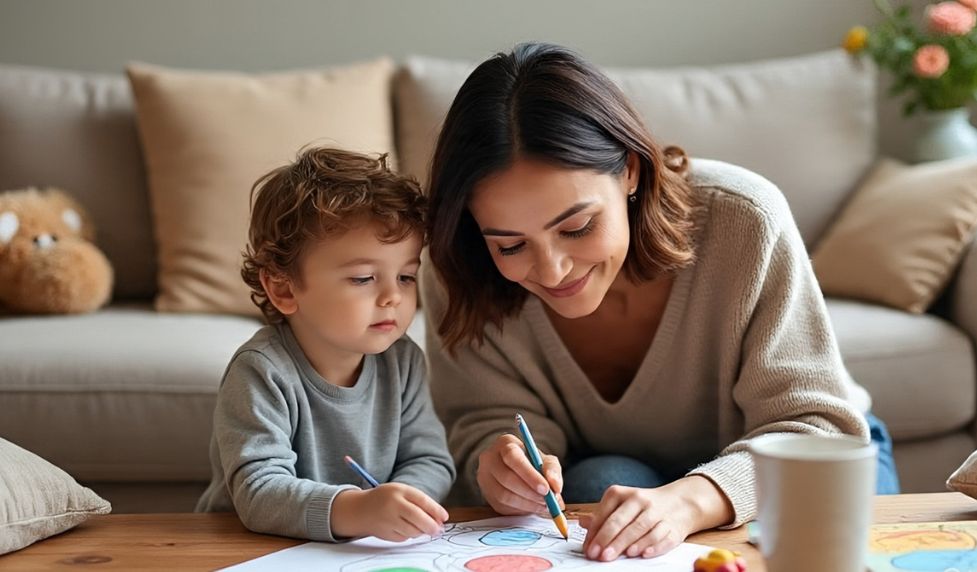Parenting isn’t something you can revise for. There’s no handbook that fits every child, and if there were, it would be out of date by the time you got to page ten. Most of us end up muddling through, trying things, getting them wrong, and hoping our kids turn out alright anyway. But if you’ve ever wondered what actually makes a good parent, you’re not alone. Keep reading for a list of seven things that make you a good parent.
Being There (Even When You’re Tired)
If you ask children what they remember most, it’s usually not the flashy holidays or expensive toys. It’s the small things, like someone cheering them on at sports day, or a daft joke at tea time. Being present matters far more than being perfect.
That doesn’t mean you can’t have an off day, as we all have those. What counts is showing up most of the time and making your child feel that they’re worth listening to. Putting your phone away, making eye contact, and actually paying attention to their endless Minecraft chat or their story about school lunch? That’s gold to them.
Rules without the Drill Sergeant Voice
Children need boundaries. They might roll their eyes and push against them, but deep down they need that structure. A house with no rules feels unpredictable, and kids don’t thrive in chaos. But that doesn’t mean you need to bark orders.
Think of rules as road signs. They guide kids in the right direction without making them feel trapped. “Bedtime is at 8” or “we don’t hit” are clear, fair, and easy to stick to. The key is consistency. If you suddenly change the rules depending on your mood, it gets confusing fast.
Noticing the Good Stuff
Kids light up when you notice effort, not just results. Saying “I saw how hard you tried with that drawing” often means more than “that’s brilliant.” It feels genuine.
Criticism has its place, but the tone matters. Telling a child “you’re lazy” will stick in their head far longer than “you need to pick up your socks.” One is about their character, and the other is just about the behaviour. There’s a big difference.
Practice What You Preach
We can’t expect kids to do what we say if we never do it ourselves. If you want them to be polite, they need to hear you saying “please” and “thank you.” If you want them to stay calm, they’ll learn more from how you handle traffic jams than from any lecture.
And yes, you’ll slip up. Maybe you shout, maybe you swear under your breath. The trick is to own it. A simple “sorry, I shouldn’t have shouted” shows them that adults make mistakes too, and that saying sorry isn’t a weakness.
Making Home Feel Safe
The atmosphere at home sets the tone for everything. A place filled with warmth and laughter gives kids the confidence to explore the world. This is especially true for children who come from unsettled backgrounds. Carers working with groups like Fostering People know just how powerful it is when a child finally feels safe and supported.
But even in everyday family life, it’s worth asking yourself: does my home feel like a place where kindness is normal? Where mistakes aren’t the end of the world? If the answer is yes most of the time, you’re doing something right.
Rolling with the Changes
Parenting isn’t static. Toddlers need cuddles and firm “no’s.” Teenagers need space, trust, and about a gallon of patience. What worked when your child was six won’t necessarily work when they’re sixteen.
Being willing to change your approach doesn’t mean you’re weak. It shows you’re paying attention. Kids respect that more than we realise.
Accepting That Nobody’s Nailing It
Every parent has moments where they feel like they’ve messed up completely. Maybe you shouted louder than you meant to, or maybe you forgot the costume day at school. It happens.
What matters isn’t avoiding mistakes but how you respond afterwards. A hug, a laugh at yourself, or a genuine apology goes a long way. Children don’t need flawless parents. They just need ones who care enough to keep trying.




